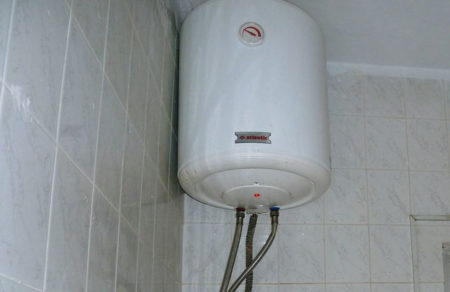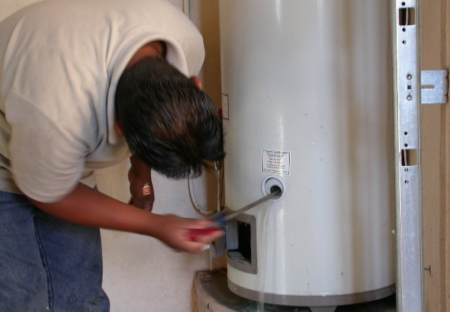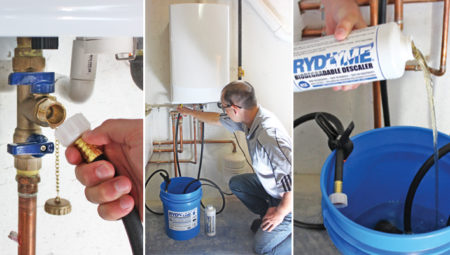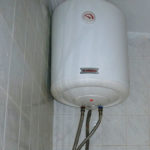If you are one of those household men, rare in our time, then you do not need to tell how to descale a boiler at home, you already know that! This article is for those who, until now, were not too puzzled by such problems, but right now decided to save money on calling a specialist.
But, better late than never! Therefore, we highly approve of your zeal and will describe this simple process in maximum detail for you.
How do you know if the boiler needs cleaning?

First, you should know that preventive cleaning of the water heater should be carried out at least once a year. If you clean it every six months, it's even better for the device! And if he is better, then your pocket too, you know. After all, buying a new heating element or other parts, as well as paying for the work of a replacement specialist, is very expensive.
Secondly, there are various methods designed to improve the quality of the water and soften it, so that you don't have to clean the boiler so often. These include:
- Filters for mechanical cleaning at the inlet
- Ion or sorption filters
- Magnetic water transducers
- Cationic additives and other regents
But, these products do not purify water 100%, and it will still be necessary to clean it mechanically. True, less often.
But, if you simply did not know this and the boiler has been in operation for a long time, then you probably began to notice such signs that directly indicate that an urgent "time" has come:
- You have noticed that the power consumption has increased markedly. Indeed, a layer of scale, only 1 mm, increases the light consumption by 10%, but an annual layer of 10 mm, by all 70%!
- You began to notice that the tank heats up very slowly. This is also because a large "fur coat" has formed on the shade, which greatly impedes heat transfer. In addition, in this case, the boiler works much more intensively than necessary, and thereby shortens its operating life.
- Some noises and hiss are heard from the boiler.
- If there is a magnesium anode there, and it looks significantly thinner, then you need to clean it immediately.
![]() See also - How to repair a boiler yourself?
See also - How to repair a boiler yourself?
A few words about magnesium anodes
For some reason, many believe that the magnesium anode is just a panacea. Say, if you put it, then cleaning the boiler with your own hands is no longer required. Such opinions can often be heard not only from the local Kulibins, but even from plumbers!
But, this opinion is very far from the truth. The magnesium anode is designed to protect the tank from corrosion! And converts hard salt deposits to soft ones. That is, it will simply be easier for you to clean them. But they will be formed, in any case.
How to properly disassemble and remove the boiler

It all depends on where it hangs from you. If in the bathroom and its valves are located above the very bowl of the bath, then you do not need to remove it. Pull out only the heating element of the water heater. If in the toilet above the cistern or in the kitchen, then you need to remove it.
Therefore, we will describe the process in full, including the withdrawal:
- Drain hot water through the tap to the end
- Disconnect the device from the network
- We shut off the cold water supply to it
- A tube is unscrewed in the hot water outlet, and a flexible hose is attached to this place. The end of it must be lowered into a bath, bucket or toilet, depending on the location of the boiler.
- We unscrew the cold water pipe. It will take about half an hour to drain.
- We remove the decorative cap, for which first the screws are unscrewed, and then the indicator terminals.
- We remove grounding and wires. Here we can advise you to take a picture of them beforehand, so that later, when collecting, you do not confuse anything, and you can check the starting position.
- Cover the bath with a large piece of cloth.
- Now, the tank is completely prepared for cleaning - remove and take it to the bath, previously laid out. This will protect it from scratches and chips. You need to put it up with taps.
- Loosen the clamp and remove the thermostat. If you notice that the rubber seals are covered with a layer of scale, and because of this it does not come off, you need to gently knock on them.
How and how to descale heating elements
 When you pull it out, you will be very surprised. After such manipulation, many are impressed and forever refuse to drink tap water.
When you pull it out, you will be very surprised. After such manipulation, many are impressed and forever refuse to drink tap water.
The heating element is so shaggy and plastered over, and dirty particles of a rusty coating fall out of the tank.
But, fortunately, the heating element, unlike the kidneys, is quite easy to clean. If the deposits on it are very dense, you can suppress them with pliers and knock them off completely. The remains can be cleaned off with a knife.
And very small residues - some kind of acid. Or a solution of citric, or acetic acid, diluted with water. Soak the heating element for a day or less, and then rinse very well. If acid is left on the metal, it will provoke the development of violent corrosion.
Proportions: 2 sachets of lemon in 2 liters of water. That is, this is a fairly strong solution comes out.
By the way, don't forget to change the magnesium anode on the quiet. If you see that it has greatly decreased in size, then it's time.
How to clean a dry heating element
Dry heating element is not metal or copper, but just ceramic. Its cleaning is no different from usual. Just be careful. Naturally, you should not knock on it with pliers.
How do I clean the tank?
The tank is also very dirty. Shine a flashlight. If you see noticeable layers of limescale, mucus and other nonsense, then you will not get by with the usual rinsing from the hose.
There are various tank cleaners on the market, it is best to use them. You can rinse with citric acid, but the concentration should be higher. Therefore, most likely, the finished product will be cheaper.
It is not worth cleaning it mechanically, since the walls of the tank are very prone to scratching and the slightest damage will lead to the development of rust. And the water, over time, will flow rusty ...
Well, now you know how to descale a water heater. And you can assume that you earned as much as the plumber charges for such a service. After all, saving is the same as earning!
See also:
- 6 best Hotpoint-Ariston water heaters
- 8 best Zanussi water heaters of 2019
- 8 best Thermex water heaters of 2019
- 10 best Timberk water heaters of 2019
- 10 best Gorenje water heaters of 2019

